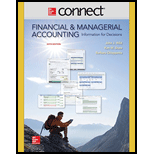
Note receivable:
It refers to the amount that is to be received by a company from a third party on a promise to pay at any specified future date.
Maturity date:
It refers to the date at which the amount of a note receivable is expected to be received or the amount of a note payable is expected to be paid.
It means record of financial data related to business transactions in a journal in a manner so that debit equals credit. It provides an audit trail to the auditor and a means to analyze the effects of transactions to an organization’s financial health.
Rules of journal entry:
- Assets: Increase in asset should be debit and decrease should be credit.
- Liabilities: Increase in liabilities should be credit and decrease should be debit.
- Equity: Increase in Equity should be credit and decrease should be debit.
- Expense: Increase in expense should be debit and decrease should be credit.
- Revenue: Increase in revenue should be credit and decrease should be debit.
To prepare: Journal entries for the given transactions of note receivable and honor of note receivable.
Want to see the full answer?
Check out a sample textbook solution
Chapter 7 Solutions
Connect 2 Semester Access Card for Financial and Managerial Accounting
- What is the stockholder's equity at the end of the year on general Accounting question?arrow_forwardI don't need ai answer accounting questionsarrow_forwardLaws can be classified into several categories: criminal law versus civil law, substantive law versus procedural law, public versus private law, and law versus equity. Discuss one of these categories and the distinctions between the two types of laws.arrow_forward

 AccountingAccountingISBN:9781337272094Author:WARREN, Carl S., Reeve, James M., Duchac, Jonathan E.Publisher:Cengage Learning,
AccountingAccountingISBN:9781337272094Author:WARREN, Carl S., Reeve, James M., Duchac, Jonathan E.Publisher:Cengage Learning, Accounting Information SystemsAccountingISBN:9781337619202Author:Hall, James A.Publisher:Cengage Learning,
Accounting Information SystemsAccountingISBN:9781337619202Author:Hall, James A.Publisher:Cengage Learning, Horngren's Cost Accounting: A Managerial Emphasis...AccountingISBN:9780134475585Author:Srikant M. Datar, Madhav V. RajanPublisher:PEARSON
Horngren's Cost Accounting: A Managerial Emphasis...AccountingISBN:9780134475585Author:Srikant M. Datar, Madhav V. RajanPublisher:PEARSON Intermediate AccountingAccountingISBN:9781259722660Author:J. David Spiceland, Mark W. Nelson, Wayne M ThomasPublisher:McGraw-Hill Education
Intermediate AccountingAccountingISBN:9781259722660Author:J. David Spiceland, Mark W. Nelson, Wayne M ThomasPublisher:McGraw-Hill Education Financial and Managerial AccountingAccountingISBN:9781259726705Author:John J Wild, Ken W. Shaw, Barbara Chiappetta Fundamental Accounting PrinciplesPublisher:McGraw-Hill Education
Financial and Managerial AccountingAccountingISBN:9781259726705Author:John J Wild, Ken W. Shaw, Barbara Chiappetta Fundamental Accounting PrinciplesPublisher:McGraw-Hill Education





